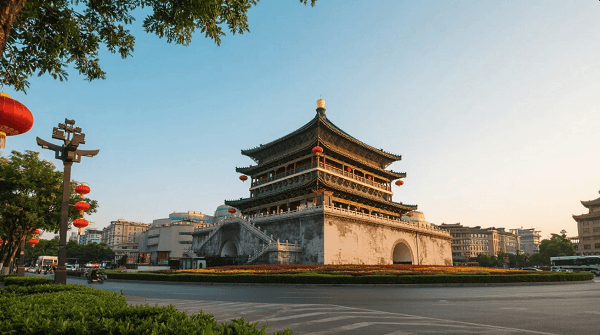China travel offers rich cultural experiences, breathtaking landscapes, and futuristic cities. But before embarking on your journey, it’s essential to prepare. Understanding local policies, digital access, safety considerations, and cultural etiquette will ensure that your experience is not only enjoyable but also stress-free.

Visa & Entry Requirements
Before setting off on your China travel adventure, checking visa requirements is crucial. Several countries are eligible for visa-free entry for up to 30 days. Additionally, a 10-day visa-free transit policy applies to select international hubs in China. However, if your country is not listed, you must apply for a visa in advance.
A valid passport with at least six months’ remaining validity is typically required. Travelers staying in private residences are usually expected to register with the local police within 24 hours of arrival.
Digital Connectivity & Language Barriers
Staying connected in China is different than in most other countries. Many Western websites and apps, including Google, WhatsApp, Facebook, and Instagram, are not accessible without a Virtual Private Network (VPN). If you rely on these tools, be sure to install a trusted VPN before arrival.
Instead of those platforms, locals use WeChat and Alipay for nearly everything—from messaging to making payments and booking taxis. Foreigners can now link international cards to these apps, making life significantly easier.
Because English is not widely spoken outside major cities, having a translation app such as Baidu Translate is helpful. Learning a few basic Mandarin phrases can also go a long way.
Safety & Legal Considerations
China travel is generally safe, with low rates of violent crime. Still, travelers should be cautious of scams, especially around tourist spots and ATM machines. Pickpocketing is uncommon but not unheard of.
The legal environment in China may differ significantly from what you’re used to. Avoid public demonstrations, and steer clear of discussions around sensitive political topics. It’s also recommended to carry a copy of your passport and visa at all times.
The U.S. Department of State and similar agencies often issue travel advisories urging visitors to exercise increased caution due to potential risks of arbitrary law enforcement and exit bans.
Best Times to Visit China
Timing is everything for an enjoyable China travel experience. The best months to visit are usually April to June and September to November. These periods offer pleasant weather and fewer crowds.
Avoid traveling during China’s “Golden Week” in early October and the Spring Festival (Chinese New Year), when hundreds of millions of people travel domestically. During these times, transportation is overwhelmed, prices surge, and accommodation becomes harder to secure.

Money Matters and Mobile Payments
China is rapidly becoming a cashless society. In most urban areas, mobile payment platforms like Alipay and WeChat Pay are the standard. Some foreign credit cards are accepted in high-end hotels or tourist centers, but don’t count on them being accepted everywhere.
While mobile payments dominate, it’s still wise to carry some cash, especially if visiting remote towns or traditional markets.
Transportation and Mobility
5China’s transportation system is extensive, efficient, and surprisingly affordable. High-speed railways connect major cities, and trains are clean and punctual. Booking in advance is recommended, especially around national holidays.
In cities, ride-hailing apps like Didi (similar to Uber) are the norm. Most drivers don’t speak English, but the app offers an English-language interface. Public transport, particularly subways, is well-developed and reliable.
For shorter trips within cities, electric bikes and scooters are available via app-based services.
Cultural Etiquette and Practical Tips
Respect for tradition and authority is a strong cultural element in China. When engaging in China travel, keep in mind the following:
Always address elders respectfully.
Avoid loud or confrontational behavior in public.
Bring tissues and hand sanitizer—many public restrooms may lack basic supplies.
Use two hands when giving or receiving objects such as gifts or business cards.
Avoid sticking chopsticks vertically into food, as it resembles funeral rituals.
Also, be aware of air pollution in some regions. Major cities like Beijing and Shanghai have improved their air quality significantly, but it’s still wise to check local air indexes before traveling.

Final Thoughts
Planning ahead is the key to a successful China travel experience. From understanding digital norms to mastering cultural etiquette, a little preparation ensures you’ll navigate smoothly and enjoy the full richness of your journey.
China blends ancient heritage with ultramodern innovation—offering something for every traveler. By being informed and adaptable, you can experience the country respectfully and confidently.




